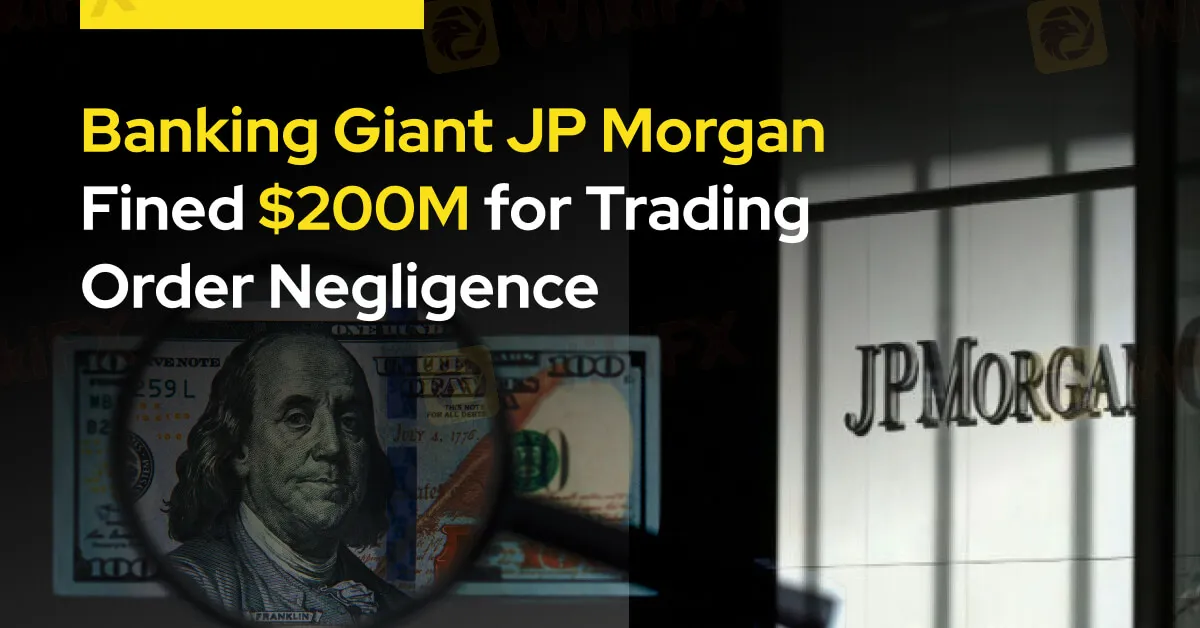Abstract:The Commodity Futures Trading Commission (CFTC) has settled charges against J.P. Morgan Securities LLC, a registered futures commission merchant and swap dealer, with a $200 million civil monetary penalty

The Commodity Futures Trading Commission (CFTC) has settled charges against J.P. Morgan Securities LLC, a registered futures commission merchant and swap dealer, with a $200 million civil monetary penalty. This penalty will be offset by $100 million, contingent on payments made pursuant to a related resolution with JPMorgan Chase Bank.
J.P. Morgan admitted to failing to diligently supervise its business, resulting in the failure to capture billions of orders in its surveillance systems. The CFTC emphasized that the resolution includes a significant penalty, certain factual admissions, and the appointment of a consultant to ensure remediation. The commission aims to convey a clear message that CFTC registrants must take appropriate steps to ensure, through testing and other means, that complete trade and order data direct from exchanges are being ingested into trade surveillance systems and that orders are being properly monitored.

In 2021, during the onboarding of a new trading exchange, J.P. Morgan discovered that its surveillance of trading on multiple venues and trading systems was not operating correctly. This issue resulted in substantial gaps in J.P. Morgans trade surveillance on these venues, highlighting a significant oversight in their compliance processes.
The surveillance gaps stemmed from J.P. Morgan's failure to configure certain data feeds to ensure that complete trade and order data were ingested by its surveillance tools. This technical misconfiguration led to a failure in monitoring billions of order messages over an extended period.
On a designated U.S. contract market, J.P. Morgan failed to ingest into its surveillance systems—and thus did not monitor—billions of order messages from 2014 through 2021. These unmonitored messages largely consisted of sponsored access trading activity for three significant algorithmic trading firms. J.P. Morgan has since represented that the surveillance gaps were fully remediated by 2023, addressing the compliance shortcomings identified.
Furthermore, J.P. Morgan had a quarterly reconciliation process in place to ensure the completeness of some order and trade data ingested into certain surveillance systems. However, it did not apply this process to direct-from-exchange data feeds. This oversight was based on an erroneous assumption that data directly from an exchange was a “golden source” and did not require testing. This assumption proved to be a critical error, leading to significant gaps in their surveillance capabilities.
The CFTC's resolution with J.P. Morgan underscores the critical importance of rigorous supervision and comprehensive data monitoring within financial institutions to maintain market integrity and compliance. The appointment of a consultant to oversee the remediation process is intended to ensure that such lapses do not occur in the future, reinforcing the need for continuous and thorough oversight in trading activities.
This settlement serves as a stark reminder to all CFTC registrants about the essential need for robust surveillance systems and diligent supervision practices, be it for big established firms or new budding organizations. Ensuring the completeness and accuracy of trade and order data is always fundamental to the integrity of the trading markets and the protection of investors.











